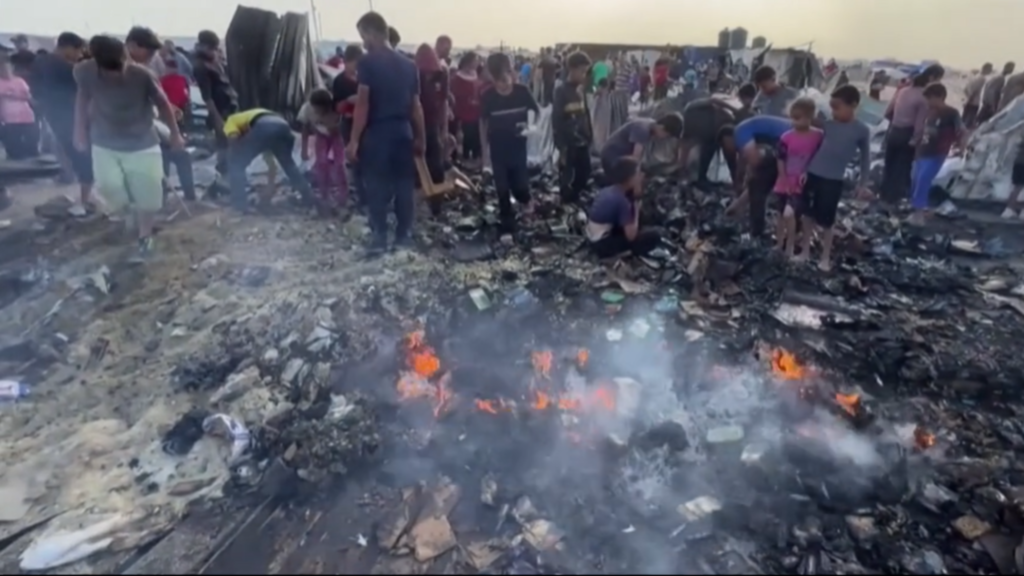Calculated Risk or Tragic Error? Examining the Aftermath of the Rafah Airstrike

On Sunday, an Israeli airstrike targeted the Tal al-Sultan neighborhood in Rafah, southern Gaza, resulting in catastrophic civilian casualties and igniting global condemnation. The strike, aimed at eliminating two senior Hamas leaders, led to a massive fire that devastated the camp housing displaced civilians.
The airstrike hit an area where displaced civilians were sheltering in tents, causing a fire that engulfed the camp. How did a “precision strike” result in such catastrophic civilian casualties?
Graphic images and videos from the scene showed extensive destruction and horrifying injuries. Médecins Sans Frontières reported that their facility received 28 dead and treated 180 injured, many with severe shrapnel wounds, fractures, and burns.

Prime Minister Benjamin Netanyahu acknowledged the incident as a “tragic mistake” and stated that an investigation was underway. But amidst growing international condemnation, questions arise: How can such mistakes be avoided in the future? He emphasized Israel’s efforts to minimize civilian harm but defended the necessity of military operations against Hamas. Is there a balance between military objectives and civilian safety?
The international community reacted strongly to the Rafah airstrike. French President Emmanuel Macron and the European Union’s foreign policy chief, Josep Borrell, condemned the attack, calling for an immediate ceasefire and adherence to international law.
The U.S. National Security Council described the images as heartbreaking but reiterated Israel’s right to defend itself while urging maximum precautions to protect civilians.
Qatar and Egypt, key mediators in ceasefire negotiations, warned that the incident could derail peace efforts.
The United Nations’ human rights chief, Volker Turk, criticized Israel for its apparent disregard for civilian lives.
The airstrike in Rafah is part of an ongoing conflict that began on October 7, 2023, when Hamas launched a significant attack on Israel, resulting in numerous civilian casualties and the capture of hostages.
The conflict has since escalated, with more than 36,000 people killed in Gaza and severe humanitarian conditions prevailing. What steps can be taken to break this cycle of violence and suffering?
Israel has faced increasing legal scrutiny, including an order from the International Court of Justice to halt its offensive in Rafah. The International Criminal Court is also seeking arrest warrants for Israeli and Hamas leaders over alleged war crimes.